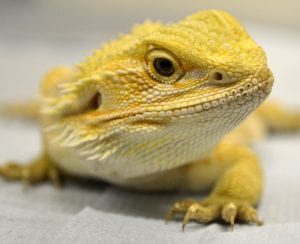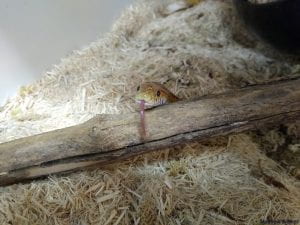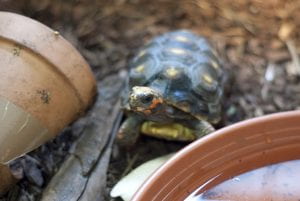Reptile cognition
Our research has revealed impressive cognitive abilities in reptiles – they are much cleverer than has previously been thought (see Wilkinson & Glass, 2018; Matsubara et al 2017 for some recent reviews). We have demonstrated that reptiles can exhibit social learning (Siviter et al. 2017) including imitation (Kis et al. 2015), something that was once considered unique to humans. They show impressive spatial awareness (Mueller-Paul et al. 2012; Mueller-Paul et al. 2014), have substantial long-term memory (Mueller-Paul et al. 2014; Soldati et al. 2017) and are even able to use a touchscreen (Mueller-Paul et al. 2014). We have recently shown that they are able to discriminate between familiar and unfamiliar humans, but only when enriched (Nagabaskaran et al., 2021). These findings emphasise the need for captive reptiles to experience cognitively complex housing environments and appropriate husbandry regimes in order to maximize their welfare.
Reptile Welfare
Little is known about whether the methods of animal welfare assessment developed for mammals and birds are also effective for reptiles. In our research we have successfully adapted existing behavioural and cognitive measures of welfare for reptiles (Burman et al., 2016; Hoefuertner et al., submitted) and identified novel species-specific behavioural measures
(Moszuti et al., 2016). We are currently working on research programmes which use this knowledge to investigate how husbandry impacts welfare. This includes the impact of enrichment, enclosure size, incubation temperature (Siviter et al. 2017; 2018; 2019) and handling (Stockley et al., 2020) on reptile behaviour and welfare.
Reptile Health
With little understood about how reptiles respond to challenge, it is often assumed that they cope well with captivity and are easy to keep. However, that may not necessarily be the case, and our recent survey of vets has revealed that many of the illnesses they see are associated with a poor owner understanding of husbandry requirements (Whitehead et al., 2017; Hoefuertner et al., in prep). It has been suggested that this might be because reptile owners are not bonded to their pet, however, this does not appear to be the case (Haddon et al. in press). We are currently investigating the best methods to educate the public about reptile behaviour and welfare and to increase awareness of good husbandry practice for owners.



